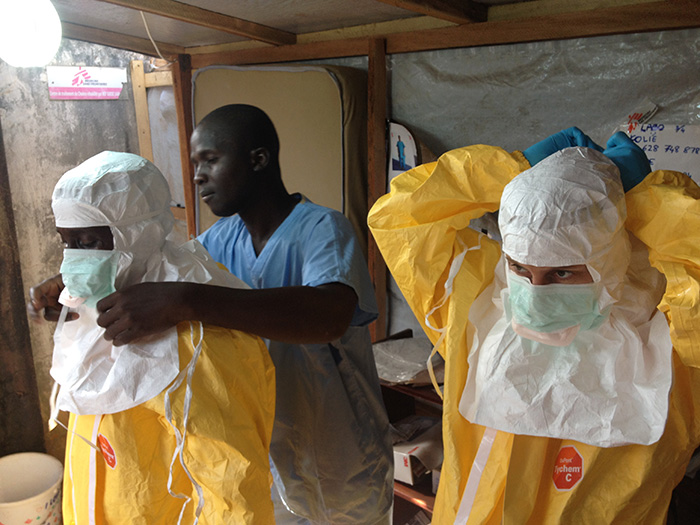ebola-team-c-european-commission-dg-echo.jpg

A medical team during the Ebola outbreak. Credit: European Commission
The Alliance for Health Policy and Systems Research found that a new model of leadership, based on inclusivity, would be required to bring about change and improve the world’s health systems.
Abdul Ghaffar, executive director at AHPSR, said that in the era of the Sustainable Development Goals it was becoming “increasingly clear that traditional individualistic and hierarchal leadership approaches are out of date and ineffectual”.
“The Ebola crisis in West Africa underscored the urgent need to strengthen health systems,” he continued. “It also revealed the need for multi-disciplinary approaches for participatory leadership.”
During the crisis, for example, it was community leaders, local pastors, nurses and volunteers that were able to convince families of Ebola victims to forgo traditional burial rites – a key factor in the disease’s spread.
“A leader’s ability to bring about change ultimately depends on their ability to mobilise support from a range of leaders and actors at regional and district levels,” Ghaffar pointed out.
The report was based on surveys from 65 countries and interviews with over 20 prominent health leaders mainly from low- and middle-income countries, conducted over two years.
It grounded itself in two principles: health system performance is measured not only on outcomes, but also values such as equity and appropriateness of care; and that health is no longer the exclusive domain of clinical providers, but relies on a wide range of actors from different disciplines.
The report particularly highlighted the role of civil society. The Framework for Convention on Tobacco Control, the global tobacco control treaty, was adopted largely because of the efforts of anti-tobacco lobbyists and researchers, while activism has also helped drive progress towards AIDS eradication.
It also pointed out that the eradication of smallpox and success in combating polio have been largely due to participatory leadership, with many groups representing diverse interests coming together to bring about lasting change.
The media and high level figures and bodies outside of the health sphere also have a high degree of influence, it continued.
Sugar taxes that have recently been adopted in a number of countries, including Mexico and the UK, might be another example.
Researchers concluded that adopting “adaptive and participatory” forms of leadership for health systems will be critical to realising the SDGs.













